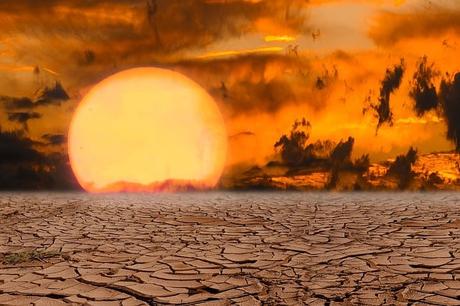Climate change is either a severe problem or a crisis for two-thirds of Americans, and the majority demand immediate action to address global warming and its disastrous consequences, major new polling has found.
When questioned on the new CBS News poll, more than a quarter of Americans consider climate change a “crisis”, and a further 36% defining it as a “serious problem”. Two out of 10 respondents consider it as a minor problem, and just 16% find it absolutely not worrisome.

Polled Americans, more than half in number, wanted the climate crisis to be confronted right away, while smaller groups would like to wait some more years. Only 18% rejected any need to act.
“Americans are finally beginning waking up to the existential threat that the climate emergency poses to our society,” said Margaret Klein Salamon, a clinical psychologist and founder of the Climate Mobilization Project. “This is huge progress for our movement – and its young people that have been primarily responsible for that.”
There is unanimity among climate scientists that human activities such as burning fossil fuels to generate electricity, transportation, and cutting down forests is heating the world. However, out of total poll respondents, only 44% of them think that human activity was a significant contributor to climate change. Our impact was minor or nonexistent to more than a quarter.
In CBS poll, 52% of Americans say “scientists agree that humans are a main cause” of the climate crisis, while 48% are claiming there is disagreement among experts.
“This remains a vitally important misunderstanding – if you believe global warming is just a natural cycle, you’re unlikely to support policies intended to reduce carbon pollution, like regulations and taxes,” said Anthony Leiserowitz, director of the Yale Program on Climate Change Communication, which has made similar findings in its own, long-running polling.
“These results also again confirm a longstanding problem, which is that many Americans still believe scientists themselves are uncertain whether human-caused global warming is happening.
“Our own and others’ research has repeatedly found that this is a critical misunderstanding, promoted by the fossil fuel industry for decades, in order to sow doubt, increase public uncertainty and thus keep people stuck in the status quo, in a ‘wait and see’ mode.”
There were sharp differences in ideology regarding the attitudes to the climate crisis, the CBS research finds. Nearly seven out of 10 Democratic voters agree that humans significantly influence the climate and 80% want immediate action, while according to just 20% of Republicans, humans are a primary cause and a quarter out of them barely wish to rapid movement.
Three-quarters of Democrats agree on the science that almost all experts agree that humans are driving climate change, whereas only 29% of Republicans saying the same.
Another critical variable is age. Climate change is a serious problem or crisis to 70% of 18- to 29-year-olds, whereas just 58% over 65 concur. Younger people mostly consider it a personal responsibility to address the climate crisis, and they believe that a transition to 100% renewable energy is viable.
Greta Thunberg, the Swedish teenager who started a wave of school walkouts in demand of action, has galvanized young people with her global activist movement. Recently Thunberg arrived in the US on a solar-powered yacht, ahead of a major United Nations climate summit in New York on 23 September.
There is also a generational division that cuts across party affiliation. Two-thirds of Republican voters under 45 years of age consider it their duty to address the climate crisis, as per the CBS poll. Over 45, just 38% of Republicans feel the same.
“Younger Republicans are much more convinced climate change is a crisis and are supportive of action than older Republicans – which has big implications for the future of the party,” said Leiserowitz.
Around 75% of all respondents do understand that climate change is causing warmer summers, melting the Arctic, and rising sea levels. Other two-thirds accept that global heating will make hurricanes more severe. The recent devastating Hurricane Dorian that ruined parts of the Bahamas made 38% of Americans more concerned about the climate crisis while 56% remain unswayed.
According to Leiserowitz, the relationship is complex between extreme weather events and concern over climate change. When a major storm or flood hits, it makes people worried and increases their alarm.
Americans are sceptical about how much humans can do about it regardless of concern over climate change. To 19%, humans can stop rising temperatures and their associated impacts. Half of them think it is possible to slow but not stop the changes and 23% hardly believe that humans can do anything about it.
The views of leading presidential contenders’ climate plans may become well influenced by this. Democratic hopeful Bernie Sanders, for example, has proposed a plan for rapid remodelling of society where society can get rid of planet-warming emissions from transport and power generation within just 11 years.
“By saying we should merely slow and not reverse global warming, we are passively accepting the deaths of billions of people,” said Margaret Klein Salamon, of the Climate Mobilization Project.
“The only thing that can protect us is an all-out, all-hands-on-deck mobilization, like we did during the Second World War. Avoiding the collapse of civilization and restoring a safe climate should be every government’s top priority – at the national, state and local levels.”

